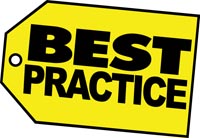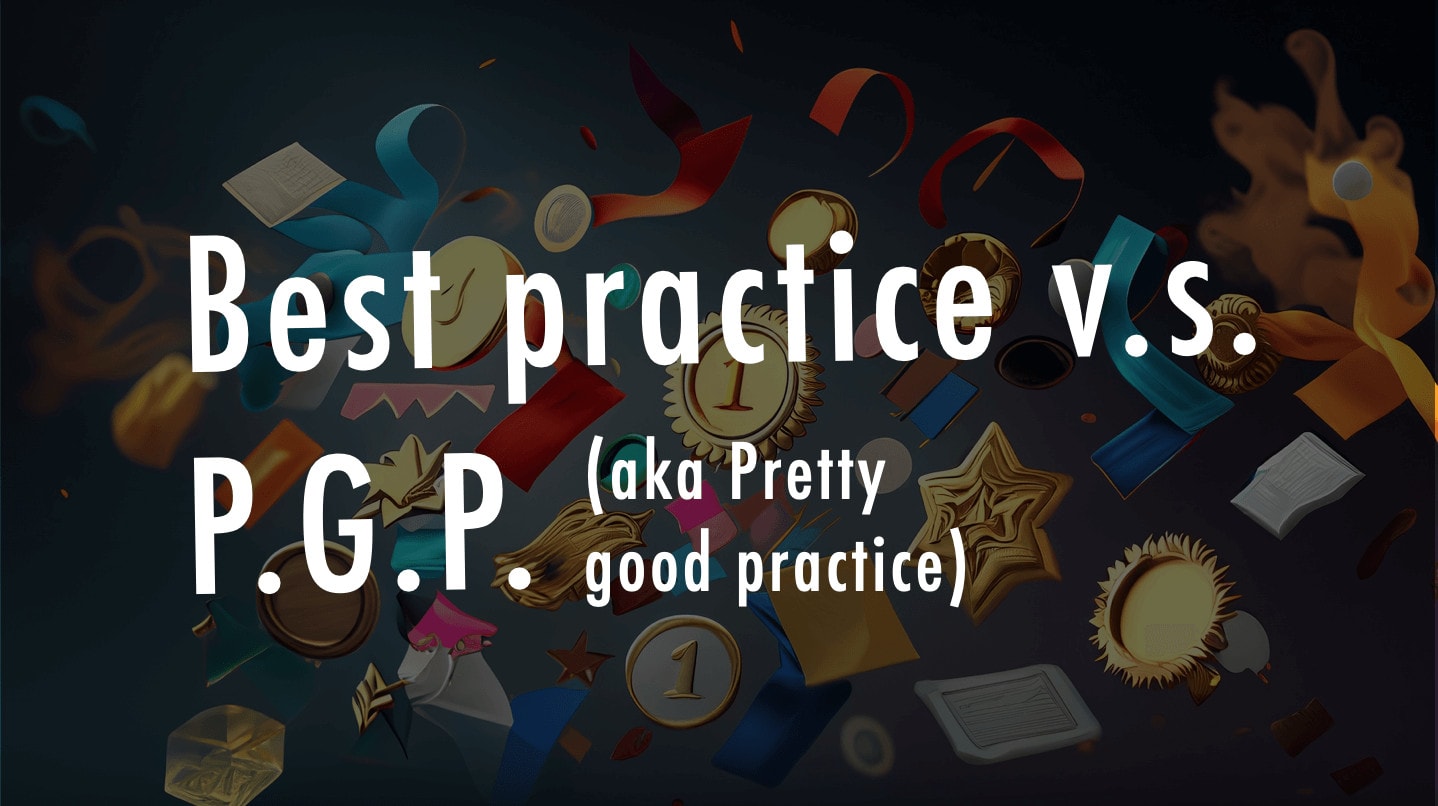I was recently in a discussion with members of the AACTE committee on Innovation and Technology about the term “best practice.” This search for best practice (or practices) is something one hears about all the time in educational (and ed tech) circles. We want to list them, document them, offer them to teachers and so on… I don’t deny the value of documenting practices that seem to work, since they can be useful models for other practitioners. However, it is the label of “best” that I rebel against. For a long time now I have been bothered by it and got a chance to put my concerns down in writing.

It seems to me that this phrase has almost become a cliche – and is wrong in some key ways. First, if we value context (which I think we all do) then the idea of best practice seems problematic. What is best for one context may not be for another. Second, how do we know that a given practice is indeed the BEST! That’s a pretty high standard to meet. Third, given the continually fluctuating and contested arena that education is, what is the best is hard to define and contingent on local, temporally based standards.
This is not to say that there are no relative judgments we can make – clearly some solutions are better than others, but I am hesitant to make (or accept) this absolute ruling (which the word “best” seems to imply).
I remember at last year’s SITE conference conference somebody asked a “what are some best practices to develop TPACK?” Since Matt had presented, and as per our rules, I had to answer questions – I said something along the same lines of what I am writing here – which is that, I am not sure I agree with the idea of identifying and documenting examples of best practice. Given the complexity of technology integration in teaching what we can hope for, at best, is PGP, i.e. Pretty Good Practice. (For those of you who remember, this is a play on words taken from email encryption where PGP means Pretty Good Privacy).
Note (added 7/29/14): I think the original idea for PGP came from a conversation I had with Yong Zhao many years ago. So I think it all fairness his name should show up on this post somewhere.
Note (July 2023): This blog post was cited in an article, actually made it to the title of the piece. Complete reference below.
Greenhalgh, S. P. & Koehler, M. J. (2019). “Pretty good practices” for the design of teacher portfolio courses. In M. Khosrow-Pour (Ed.), Pre-service and in-service teacher education: Concepts, methodologies, tools, and applications (pp. 126-151). Hershey, PA: IGI Global. [Curated reprint of previously-published material in research anthology]




Found this post on twitter, thanks for the info
Punya,
Thanks for your comment on my blog. I appreciate the delineation you make here between “best” and “pretty good,” highlighting the connotation of each. It makes me think about the words I use as a writer and as a support for teachers. There are any number of well-worn phrases in the professional development world, and, as I am just learning many of them, I tend to accept and reuse them.
What I like your post, and the body of information you and Matt have produced around TPACK, is that you seem concerned to evaluate each of these ‘buzz’ words in light of the real experience of teachers. I respect and appreciate that approach. Thanks for encouraging my own reflection.